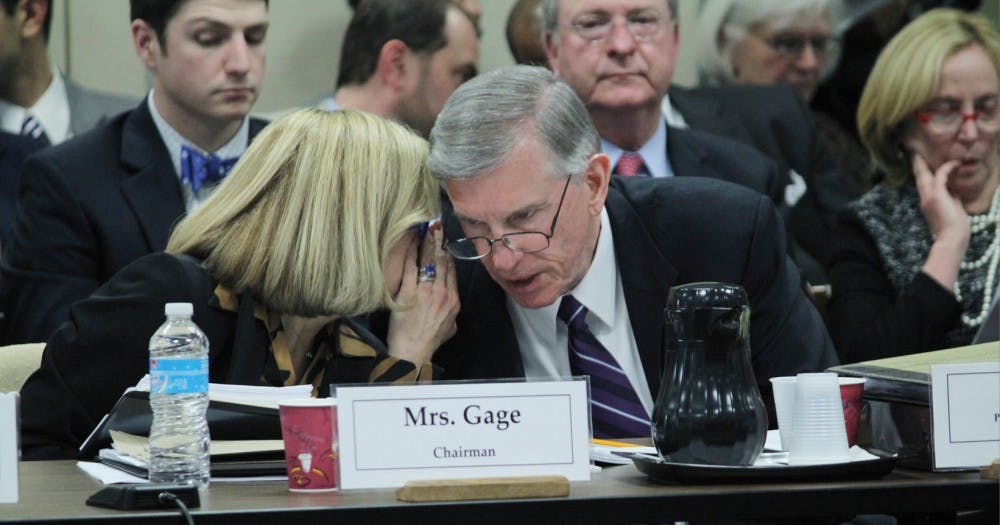Board members’ complaint about a tuition plan spanning two years stems from the Second Four-Year Tuition Plan — a policy set in place by the board in 2010 that seeks to keep stability with tuition increases.
The plan sets a 6.5 percent cap on tuition increases and refers to tuition increase proposals as an “annual process” — a phrase that was also reiterated in a letter sent to campuses in October, which reminded school officials to submit their annual tuition increase proposals to the General Administration.
N.C. Agricultural and Technical University’s Chancellor Harold Martin said he hopes the board will only pass tuition and fee increases for the next year.
“It gives us the opportunity to come back — based on need — and make the case for tuition increases next year within the tuition policy,” he said.
But chairwoman of the board, Hannah Gage, said Ross’ proposal of tuition increases for two years is what the system needs.
“There is no chance whatsoever in our minds that the legislature is going to roll in during the short session and give us a lot of money,” she said.
UNC-CH Student Body President Mary Cooper spoke on behalf of the UNC-system Association of Student Governments at the meeting.
Cooper and other members of the association endorsed Ross’ plan. Student body presidents from all UNC-system schools signed a letter endorsing his proposal and promoting need-based aid.
“Accessibility is key and the best way we see as going forward is supporting need-based financial aid,” Cooper told the board.
Financial aid
Other board members expressed concerns regarding financial aid and how much tuition revenue campuses should be allowed to direct toward need-based aid.
Ross’ tuition and fee increase proposal stated that each campus should direct at least 25 percent of tuition revenue to financial aid.
To get the day's news and headlines in your inbox each morning, sign up for our email newsletters.
But some board members at the meeting said that the state-mandated 25 percent toward financial aid needs to be a cap, and asked that Ross’ proposal be amended.
Ross promised a review of financial aid and what sources the aid should come from in the coming months.
“I don’t think I need any data or any study or any discussion from the staff and campuses to note that I think it’s wrong to take this money from one student who is struggling just as hard as any other and give it to another,” said board member Burley Mitchell.
UNC-CH puts 38 percent of its tuition revenue toward financial aid.
Shirley Ort, associate provost and director of student aid at the University, said if need-based aid had been capped at 25 percent last year, 4,000 of the 13,000 students wouldn’t have received tuition grants.
“That 38 percent gives me enough money to essentially to pay that tuition increase for every needy student,” Ort said.
Former UNC-system President Bill Friday said the ability to pay has become the primary test for tuition.
“This is the great danger,” he said. “We’re raising tuition way out of proportion than what I think the constitution requires.
“Last year at commencement, the average debt that those graduates carried out of there was $16,000 — that was unheard of during my time.”
Need-based aid from the state was cut by about $35 million this past year.
Contact the State & National Editor at state@dailytarheel.com.



